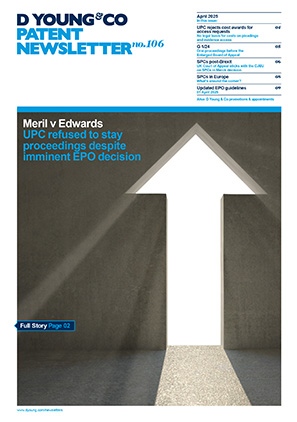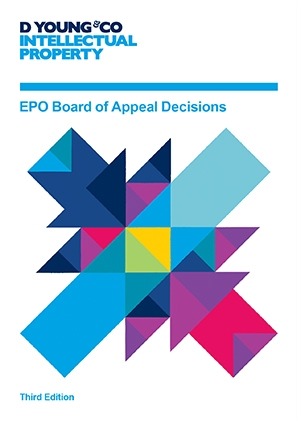Supreme Court confirms English courts able to set global FRAND terms
In a combined appeal involving Unwired Planet, Conversant, Huawei, and ZTE, the UK Supreme Court has affirmed the English Patents Court’s ability to determine, in some circumstances, the terms of a global fair reasonable and non-discriminatory (FRAND) licence following a determination that a UK standard essential patent (SEP) is valid and infringed.
This article summarises the main issues resolved by the Supreme Court, in a judgment which provides more certainty for both patentees and implementers on licensing and enforcement of patents which are subject to FRAND licensing obligations. These include patents which are essential to wireless communications standards used in telecommunications networks around the world.
Links to our 2017 commentary and the decisions themselves (via BAILII) are to be found at the end of this article.
Territorial patent rights v global licensing
The tension between the territorial nature patent rights and the global reach of the industry was addressed in the Court of Appeal’s judgment and has been previously discussed in our article “Unwired Planet v Huawei: UK Court of Appeal dismisses appeal” of 23 October 2018.
It is important to note that at no point in the proceedings was an English court assessing a non-UK patent for infringement or validity. As the Supreme Court emphasized: "If the judgments of the English courts had purported to rule on the validity or infringement of a foreign patent, that would indeed be beyond their jurisdiction. But that is not what Birss J and the Court of Appeal have done."
On the contrary: “The English courts have jurisdiction to rule upon whether the UK patents in suit are valid and have been infringed, and also have jurisdiction to rule on the contractual defence relied upon by the implementers based upon the [ETSI FRAND obligations].”
Huawei v ZTE
Unwired Planet, in seeking an injunction against Huawei, had arguably not complied with the steps set out in the CJEU decision in Huawei v ZTE. The question arose as to whether a breach of these guidelines was, de facto, a breach of competition law and, if so, whether this affected the court’s ability to grant an injunction.
The Supreme Court endorsed the finding of the Patents Court that the only mandatory requirement was for the SEP owner to notify or consult with the implementer before bringing a claim for an injunction. The form of that notification or consultation would depend on the circumstances. In this case in particular, there was “no mandatory requirement that Unwired itself make an offer of terms which coincided with those that were ultimately determined by the court to be FRAND”.
Damages v injunction
At the Supreme Court, for the first time, Huawei contended that in any case, an injunction was neither appropriate nor proportionate and that damages corresponding to reasonable royalties for the UK patents would be an appropriate remedy. The Supreme Court rejected this, holding that if the remedy was merely damages in respect of the UK patents, an implementer could hold-out unless and until it was compelled to pay by a court, remaining in no worse a situation than if it had agreed a licence from the start, and requiring the patentee to initiate legal proceedings in multiple territories.
‘Forum conveniens’ and forum shopping
One of the issues determined was whether the UK courts were an appropriate forum to settle a licensing agreement between the parties. The appellants (implementers) are Chinese firms, with manufacturing operations in China, having a relatively small portion of their sales in the UK. In addressing the ‘forum conveniens’ issue, a question before the Supreme Court was: Is the real issue the setting of a global FRAND rate, on the one hand, or the assessment of an alleged defence to infringement of a UK patent, on the other.
The Supreme Court preferred the latter, but considered that the appellants’ failure to propose a suitable alternative jurisdiction was in fact fatal to their case: only China had been proposed, when it had been held as a matter of fact that China would not determine a global FRAND rate absent the consent of the parties.
It may be that other tribunals could consider themselves competent to determine a global, FRAND, licence which would provide (if taken) a defence to infringement of patents granted in their jurisdiction, in which case the ‘forum conveniens’ issue may need to be further addressed. The Supreme Court considered that any ‘forum shopping’ that may result is a consequence of the absence of any specified tribunal or jurisdiction in ETSI’s IPR policy which, at the same time, at least implicitly endorses global licences.
In summary, having reviewed decisions in multiple other jurisdictions, the Supreme Court observed:
“We recognise that Birss J has gone further than other courts have done thus far in his willingness to determine the terms of a FRAND licence which the parties could not agree, but that does not involve any difference in principle from the approach of courts in other jurisdictions”
Non-discrimination
The Supreme Court also addressed the question of whether the ‘non-discrimination’ aspect of FRAND requires so-called ‘hard-edged’ non-discrimination, whereby a rate could not be FRAND if the licensor had previously agreed a licence at a lower rate.
The Supreme Court reviewed the ETSI IPR policy, finding that it did not require such ‘hard-edged’ non-discrimination: the purpose of the ND portion of FRAND was to avoid hold-up by a patentee and was not intended to introduce a ‘most favoured nation’ principle into SEP licensing. Accordingly, licensing different parties under different terms does not necessarily breach FRAND obligations.
This has positive implications for both licensees and licensors: a licensor agreeing a lower rate as part of a licence would (absent the Supreme Court judgment) risk being held to that rate for all subsequent licences. However, the Supreme Court ruling means that licensees can seek to obtain (and licensors can offer) rates which are lower than FRAND, without such risk arising.
However, it cannot be ruled out that if there were economic evidence that a difference in rates had an effect on competition, then subsequent higher rates may be held anti-competitive. Alternatively, absent suitably distinguishing circumstances, a court may hold that the earlier (lower rate) licence may be suitable as a comparable licence when setting subsequent FRAND terms.
Conclusion
The decisions by the UK Supreme Court and the lower courts have addressed the inherent conflict between on the one hand, a globalised market place and standards setting context for many technologies, and on the other, the national scope of individual patent rights. The Supreme Court here has recognised this conflict, and moreover has held that this was appreciated by ETSI in framing its IPR policy which “is intended to have international effect, as its context makes clear” and has the goal of “encouraging parties to reach agreement on the terms of a licence and avoid litigation which might involve injunctions that would exclude an implementer from a national market, thereby undermining the effect of what is intended to be an international standard.”
In this context, the UK Supreme Court has endorsed the determination by the English courts of a patent licence which is global in nature, as part of a UK patent infringement action for a UK patent which is the subject of (F)RAND obligations.
This provides reassuring certainty for patent owners and implementers alike as to how a UK court could proceed in such cases.
[2020] UKSC 37
Link to the original (BAILII) UK Supreme Court decision: Unwired Planet International Ltd & Anor v Huawei Technologies (UK) Co Ltd & Anor [2020] UKSC 37 (26 August 2020).
[2017] EWHC 2988 (Pat)
England and Wales High Court (Patents Court) Decision of 2017: Unwired Planet International Ltd v Huawei Technologies Co. Ltd & Anor (Rev 2) [2017] EWHC 2988 (Pat) (30 November 2017). Mr Justice Birss offered standard essential patent owners valuable guidance on the determination of 'fair reasonable and non-discriminatory' (FRAND) terms. Read our commentary and link to the 2017 decision.
Read more
